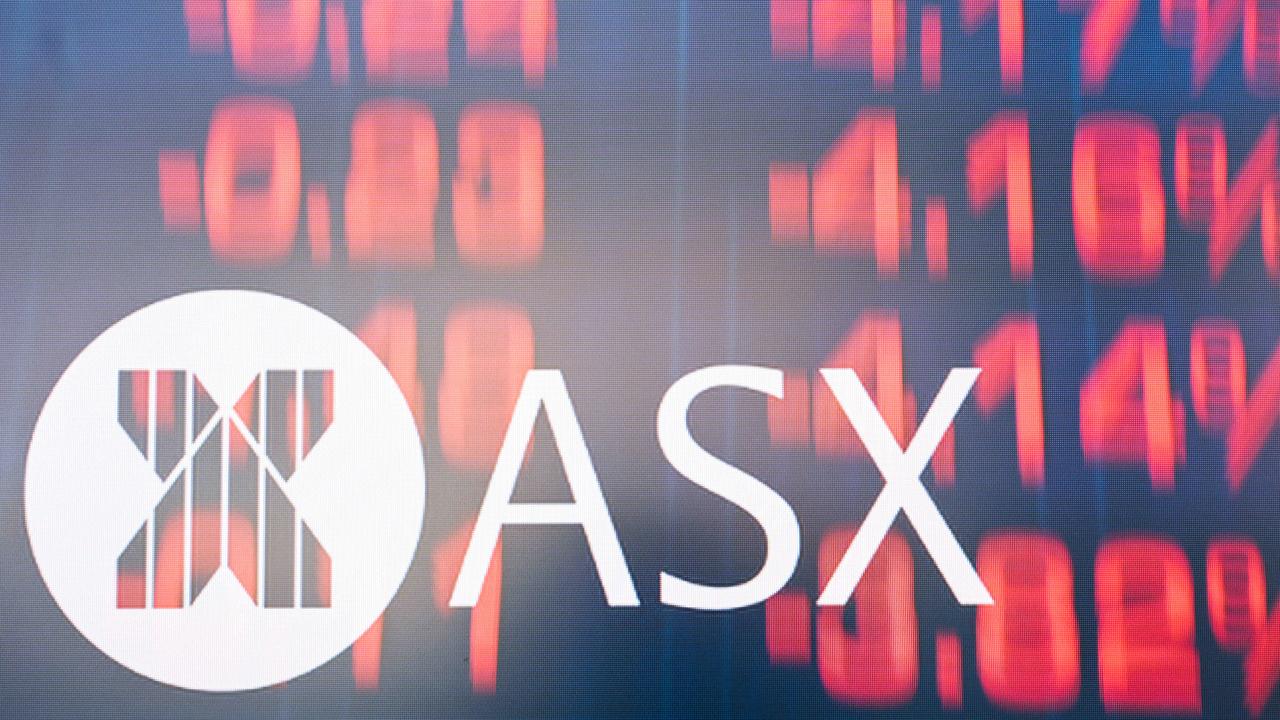ASX nosedives to cap off ‘bloody week’
The ASX tumbled spectacularly after an ‘ugly late swoon’ on Wall Street, with few stocks spared from the sea of red.
The Australian sharemarket suffered an eye-watering tumble on the back of Wall Street weakness and mounting interest rate jitters, with all sectors losing ground.
The benchmark S&P/ASX200 index closed a massive 2.27 per cent lower at 7175.8, while the All Ordinaries Index slumped 2.33 per cent to 7490.1.
A staggering 184 stocks in the top 200 fell, six were steady and just 10 rose.
For the week, the benchmark was down 3 per cent, marking its worst week in nearly 15 months.
IG market analyst Kyle Rodda said things were getting hairier in equity markets as broad-based de-risking continued.
“Wall Street’s late swoon was ugly … and sentiment was weakened further after the bell by comments made by US Treasury Secretary Janet Yellen, which outlined the Biden administration’s intent to bring down inflation,” Mr Rodda said.
OMG chief executive Ivan Tchourilov said crude oil’s price rise was tapered on news US domestic stockpiles had increased, as well as President Joe Biden committing to release excess reserves to combat inflation.
Mr Rodda said barring raising taxes or cutting spending – and maybe releasing more oil from strategic reserves to bring down energy prices – there was not much else the US government could do to control inflation “especially given this is a supply side issue”.
Mr Tchourilov said the local bourse ended the week worse off compared to last Friday.
“Materials, which had been keeping the market buoyed for the week, finally gave out,” he said.
Aussie miners had flagged reduced production, taking a bite out of valuations.
“Lithium miners are in red after it was announced that Rio Tinto’s lithium project in Serbia had ceased operations,” he said.
“The Serbian government revoked their mining licence due to backlash from locals – to what degree Novak Djokovic is involved is yet to be confirmed.
“It comes back to the paradox of how environmentally costly it is to mine resources used to reduce environmental damage elsewhere.
“The result will be upward pressure on lithium prices, so we can expect to see a bounce back from those with operational mines.”
Rio Tinto plunged 4.14 per cent to $108.72, while BHP sank 4.8 per cent to $45.70 after shareholders voted in favour of delisting from the London Stock Exchange, as expected.
Some of the biggest losses in the mining sector included Renascor Resources, down 12.96 per cent at 23.5 cents, and Arizona Lithium, down 10.8 per cent at 16.5 cents.
Gold explorer Predictive Discovery was a rare stock in the green, jumping 6.12 per cent to 26 cents.
Among energy stocks, Santos shed 2.62 per cent to $7.07, Beach Energy slid 3.05 per cent to $1.43 and Woodside retreated 2.4 per cent to $25.19.
“Tech was also on the chopping board today, following the Nasdaq’s resumption of a sell-off across the sector,” Mr Tchourilov said.
“In other words, it’s been a bloody week.”
Nuix plummeted 22.82 per cent to $1.59, Silex Systems slumped 10.37 per cent to $1.21, while Brainchip Holdings continued to reverse recent stellar gains, tanking 11.59 per cent to $1.75.
Mr Tchourilov said Brainchip had OMG’s highest number of buy orders this week, pointing to speculation by retail investors.
“Given this, holders can expect to see a bit of volatility in the price. Today’s drop is a clear example,” he said.
Appliance maker Breville Group had a rough outing, dropping 3.7 per cent to $26.99.
“Breville is down more than 16 per cent since trading resumed this year, with a fairly bearish outlook from analysts,” Mr Tchourilov said.
“Significant supply chain issues have hit them amid an attempted global expansion.
“The poor timing squeezes profit margins, making for grim expectations in the short-to-mid term.
“The half-yearly update in mid-February will need some substantial numbers to turn sentiment – the coffee machine on your wish list could come with a higher price in the coming months.
“Otherwise, the company maintains high quality fundamentals and the stock is likely to be strong in the long term, meaning some may find the depressed price an attractive entry point.”
Mr Tchourilov said Westpac was his company’s most purchased stock this week by far.
“Investors swooped in after the bank shed 2.5 per cent last Friday,” he said.
Westpac dropped 0.62 per cent to $20.98, ANZ gave up 1.65 per cent to $28.11, Commonwealth Bank gave up 1.26 per cent to $97.37 and National Australia Bank backtracked 1.32 per cent to $28.32.
Mr Tchourilov said fund managers Argo Investments and the Australian Foundation Investment Company were the second and third most bought stock among OMG clients this week.
Argo eased 1.18 per cent to $10.06, while AFIC softened 0.92 per cent to $8.64.
The Aussie dollar was fetching 71.95 US cents, 52.93 British pence and 63.49 Euro cents in afternoon trade.
Originally published as Australian sharemarket tumbles after Wall Street’s ‘ugly late swoon’
For all the latest business News Click Here

